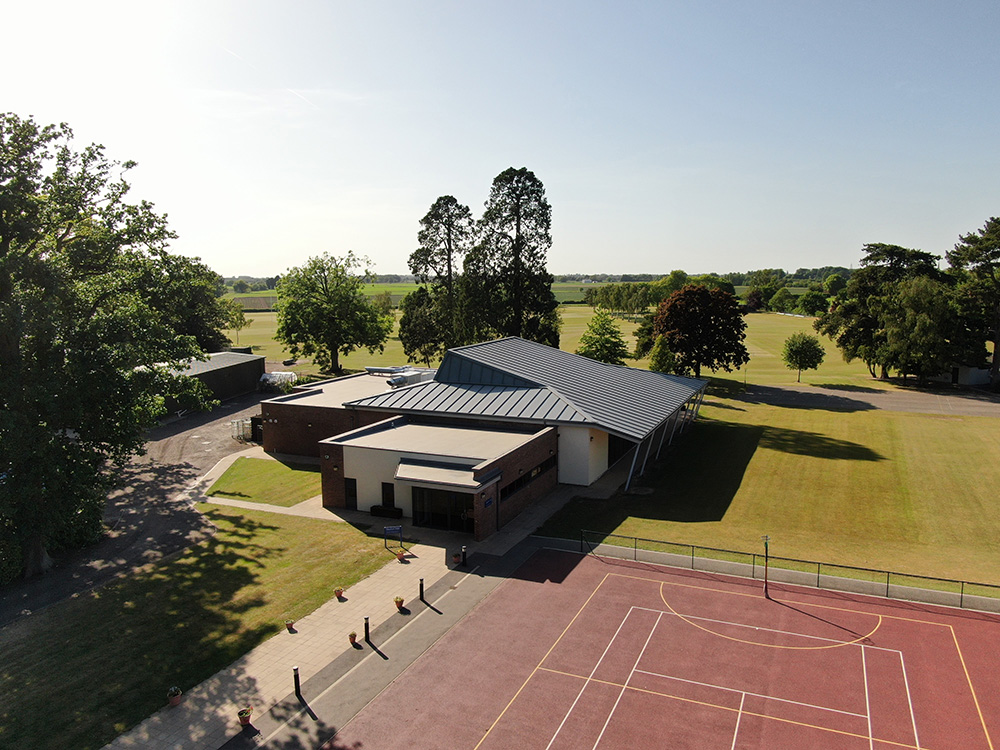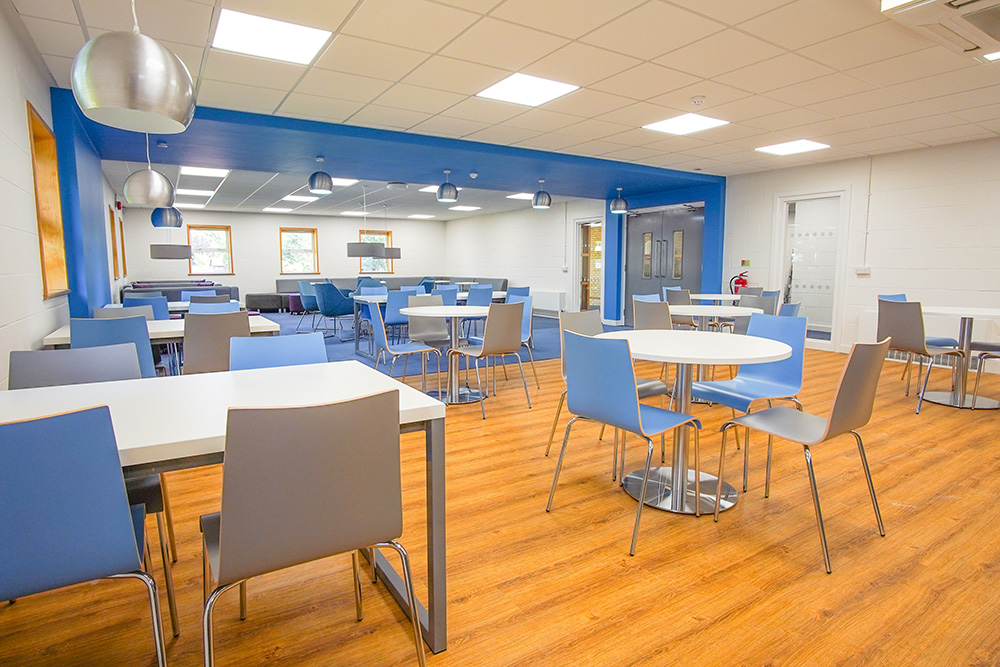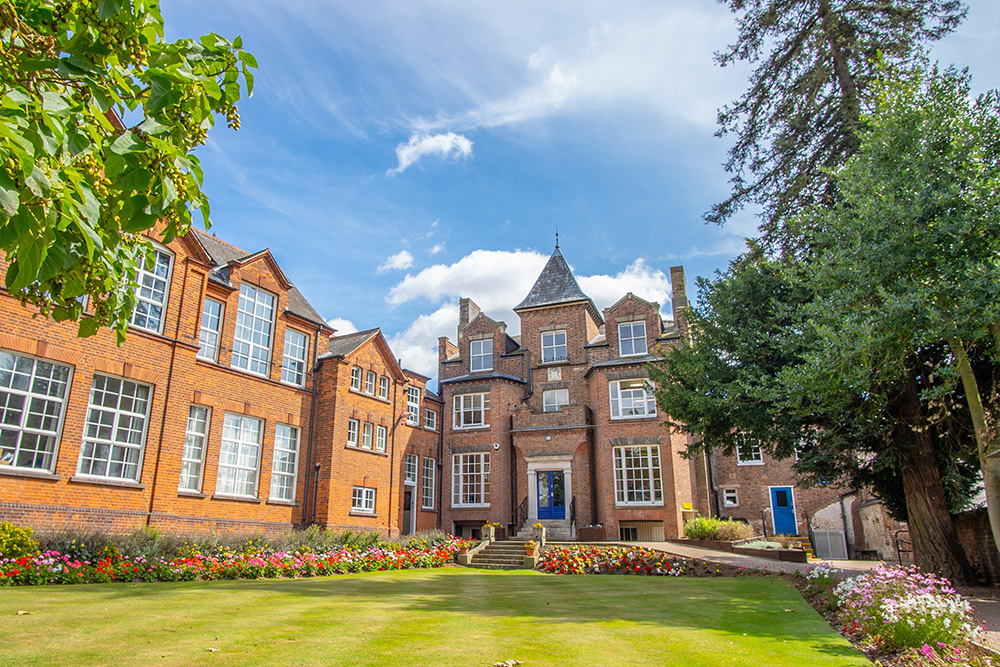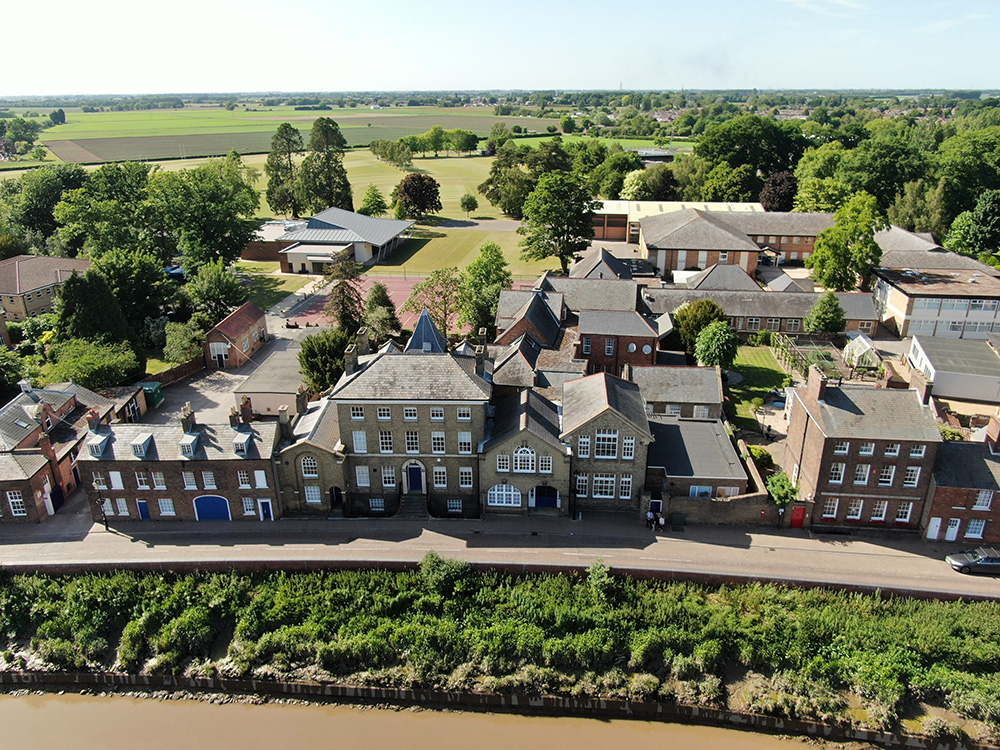Recognised as being among the oldest established schools in the UK, Wisbech Grammar School was founded during 1379. It began in a small room of the town’s St Peter & St Paul’s church and taught only boys. Almost 650 years later, in 2020, the school celebrates its 50th anniversary as a co-educational establishment. However, this is a milestone that’s likely to pass uncelebrated, thanks to Covid-19.
Five Significant Decades
During research for Wisbech Society’s 2020 Annual Review, I realised that Wisbech Grammar School as it exists today came into being at the start of the 1970/71 academic year.
I emailed headteacher Chris Staley in May. He assured me he was aware of the anniversary, but the academic and support staff were busy generating a remote teaching offer. And they were negotiating the woes of the broken exams system. So, he felt it unfair and inappropriate to divert resources from a desperate ‘now’ to the historic past.
But I’m an Old Grammarian, born in 1970. And I’m married to an Old Grammarian who works at the school. Our son is in Wisbech Grammar’s sixth form, having started in reception at Magdalene House. All things considered, I felt I had to do something to mark five significant decades.

Both Sides of the River
By 1898, Wisbech Grammar School was located on South Brink. It was still boys only, but change for the better was coming. The Girls’ Public Day School Trust had been established in 1874 and it was tasked with ensuring girls in large towns had access to an education comparable to that available for boys.
The process of change was inevitably slow. But a 1902 Act of Parliament challenged county councils with the duty of ‘supplying or aiding the supply of education other than elementary for girls…’. In November 1904, the Wisbech High School was founded as a direct result.
Established in Harecroft House on North Brink, the school began teaching in 1905.The former Peckover family residence remains central to the Wisbech Grammar School site today.
Wisbech Grammar School and Wisbech High School thrived on their respective riverbanks for 65 years. The schools maintained cordial relations through events, including an annual hockey match, a Christmas dance, and an interchange of prefects on special occasions.
Co-educational Cohort
Then, at the beginning of the 1970/71 academic year, the boys joined the girls on North Brink. The school had modernised and expanded its facilities for the larger, co-educational cohort.
Further expansion occurred in 1991 and 1993. Then there was another dramatic change in educational direction during 1997, when the North Brink campus opened Magdalene House preparatory school. This took pupils from reception to Year 6, filling a void left by the closure of St Audrey’s Convent School.
Investment in the performing arts and sports facilities in 2003 began another round of expansion, with additional infrastructure added prior to the opening of a new sixth form centre in 2010.
In 2015, the school launched a spectacular refectory, known as the Skelton Hall. Pre-Covid, this had become a welcoming central point for school activities.
The school completed its education offer in September 2018, when it opened its kindergarten. It now offered the possibility of pre-schooling all the way through to A levels.

Hums Hub
Yet the story is far from complete. A new round of improvement begun pre-Covid has already achieved tangible results. Not least in creating a cluster of classrooms officially known as the Humanities Hub, but inevitably called the Hums Hub by the student body.
In the Wisbech Society’s Annual Report 1970, Wisbech Grammar School headmaster Dr D S Andersen wrote, ‘In September 1970 the school becomes co-educational for the first time in its long history. Inevitably, its character, traditions and purpose will change.’
He was undoubtedly accurate in his prediction, as he was when he concluded, ‘The prospects for boys and girls proceeding to sixth form studies are bright, and an exciting role lies before the school in the future.’
Those prophetic words ring true today more than ever, especially considering that secondary education for girls was deemed unnecessary prior to 1874.
This year has seen the modern Wisbech Grammar School build on more than 600 years of tradition. For it has navigated the trials and tribulations of lockdown and, subsequently, socially distanced teaching. Challenges have been faced and solutions devised – some quite brilliantly, while others are a work in progress.
In his video address to 2020’s sixth form leavers, Chris Staley said they should regard themselves as the year that did. The year that completed their secondary education despite the odds. Their prospects, like those of the school’s first boys and girls in 1970, are bright and exciting.
WORDS Paul Eden
To read Paul’s previous article click here






